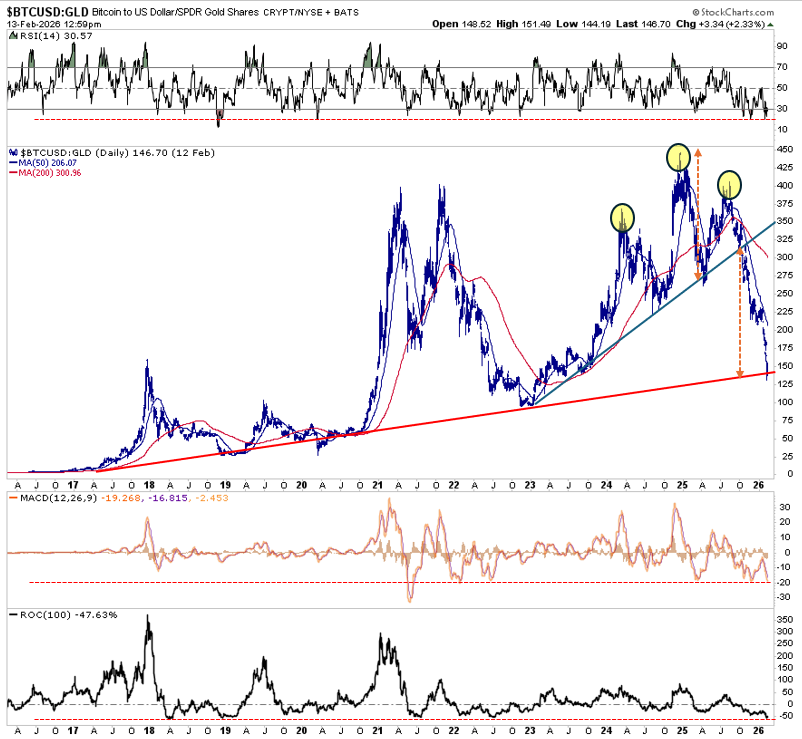Imperialism and Social Classes
by Joseph Schumpeter; Meridian, 1951 x + 181 pp.
Joseph Schumpeter, a contemporary and sometimes rival of Ludwig von Mises, agrees with Mises that capitalism leads to peace, not territorial expansion. The Marxist claim that imperialism is the highest stage of capitalism is thus mistaken. In “The Sociology of Imperialism” (1919), the first of the two essays included in this English translation, Schumpeter offers his own account of imperialism. He views imperialism during the capitalist era as a “social atavism” from earlier stages of history. His account has much to be said for it, but it is so restrictive in what counts as “imperialism” that it explains very little of the territorial expansion that took place in the period since capitalism came on the scene. In what follows, I’ll try to explain Schumpeter’s views, but the task is not altogether easy. Sometimes Schumpeter writes with great force, but often he includes so many qualifying comments and asides that the main line of his argument is difficult to discern.
Schumpeter rightly notes that, in a world of complete free trade, there is no economic reason for control of foreign territories:
It may be stated as being beyond controversy that where free trade prevails no state is interested in forcible expansion as such. . .In a genuine state of free trade, foreign raw materials and foodstuffs are accessible to each nation, as though they were within its own territory.
It might be objected that this is irrelevant to explaining imperialism in the nineteenth and early twentieth centuries, because this was not a world of free trade, but Schumpeter responds that it remains true there was no general gain to the citizens of a particular nation through protective tariffs. Of course, some groups gained at least temporary advantages from tariffs, but other groups were hurt by them, and Schumpeter is strongly inclined to believe that the losses greatly exceeded the gains. Unless the government was dominated by the groups that gain, we still do not have an economic explanation for capitalist imperialism.
A problem with Schumpeter’s argument becomes apparent if we ask, “What would happen if we could show a general economic reason for imperialism?” Schumpeter would say that such a general economic reason would not be imperialism in his usage because he takes imperialism to be expansion for the sake of expansion, war for the sake of war. Indeed, he says as much:
There must be a reason for the declaration of war, but that reason is not the cause. The true cause, of course, must also lie in an interest. But that interest is not in the concrete war aims. It is not a question of the advantages offered by the attainment of these [concrete war] aims, but in the waging of war as such.
Schumpeter is free to define “imperialism” as he wishes, but taken his way, there are few examples of imperialism, and what most people want to explain is territorial expansion as it took place, not just expansion under his definition of imperialism. Schumpeter’s response to this is that his sense of “imperialism” is the general usage.
For whenever the word imperialism is used, there is always the implication. . .of an aggressiveness for its own sake, as reflected in such terms as “hegemony,” “world domination,” and so forth.
Here one wants to say to Schumpeter, “You are mistaken. That is not what most people mean by ‘imperialism,’ and you are wrong about ‘hegemony’ and ‘world domination’ as well.” If it is contended, for example, that the United States aimed at world domination during the Cold War, it would not be a good response to deny this on the grounds that the United States did not aim at war for its own sake.
Why does Schumpeter insist on what most people will take to be an odd definition? The answer is that he does not want to reject Marx’s theory of history, according to which the relations of production in each stage of history are those best suited to develop the forces of production. Schumpeter suggests that sometimes what helped develop the forces of production in a past stage retains its influence. It is in this sense that imperialism under capitalism is an atavism:
Imperialism is thus atavistic in character. It falls into that large group of surviving features from earlier ages that play such an important part in every concrete social situation. In other words, it is an element that stems from the living conditions, not of the present but of the past—or, put in terms of the economic interpretation of history, from past rather than present relations of production. It is an atavism in the social structure, in individual psychological habits.
Schumpeter uses his notion of atavism to challenge the Marxist theory of imperialism, most famously to be found in Lenin’s Imperialism: The Highest Stage of Capitalism. Schumpeter agrees with Lenin that trusts and cartels dominated the economy of pre-World War I Germany and that the trusts and cartels sought territorial expansion behind a wall of protective tariffs. But, contrary to Marx, this was not the natural outcome of capitalism but was the product of government intervention through tariffs.
The character of capitalism leads to large-scale production, but with few exceptions large-scale production does not lead to the level of concentration that would leave but one or only a few firms in each industry... It follows that it is a basic fallacy to describe imperialism as a necessary phase of capitalism or even to speak of the development of capitalism into imperialism.
Why did the German government enact the protective tariffs required for the trusts and cartels to flourish? Here is where Schumpeter invokes atavism: the monarchy favored this, and the monarchy sought war and expansion for its own sake. This mentality was inimical to capitalism but retained its influence from the long tradition of expansionist warrior-kings and nobles. Schumpeter is insightful in what he says about capitalism, but his account of atavism should be approached with caution.
Full story here Are you the author? Previous post See more for Next postTags: Featured,newsletter






































